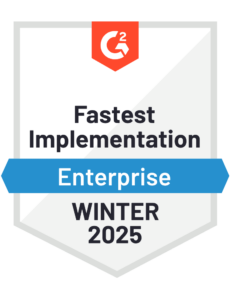Create Value For Your Team, Create a Better Year-End Close
Blog post
Share
With the end of the year quickly approaching, it’s easy for those who work in the office of finance to find themselves scrambling. This time of year brings important close tasks, reconciliations and reporting, all on tight deadlines that may lead to longer hours as you struggle to keep up with the increased shortage of accountants. Ask yourself – have you set you and your team up for success to be able to handle this time of year? What have you done to create value for your office of finance to be best prepared for the end of the year rush?
If the answer is nothing because it’s hard enough keeping your head above water on a daily basis, consider this – according to the Bureau of Labor Statistics in the United States 300,000 auditors and accountants have quit their jobs in the past 24 months, equivalent to a 17% reduction in the profession’s workforce. And nearly a quarter of accountants report they intend to leave within the next year. If you’re not creating value for your team, you could be at risk of losing them. And this time next year you could be facing even greater challenges during an already difficult time.
Some reasons accountants cite leaving for wanting to leave their jobs:
- 29% report that culture contributes to their attrition plans – a sense of belonging to a team, a set of values, and perceived unreasonable expectations from leadership
- 50% are impacted by a lack of career advancement opportunities – taking on meaningful projects, strategic work and expanding skill base
- 74% are burnt out from lack of a work/life balance – lack of creative work, working long hours, and too much repetitive, menial, and manual work that doesn’t inspire
Address Process Frustrations and the Accounting Shortage
Not addressing these issues leading to the accounting shortage is going to have major impacts on your team, your work, and leave you open to increased errors. It’s a threat to accuracy and risk management. Overwhelmed, burnt out employees lack the time and resources to conduct thorough reviews of financial transactions, and they can become so consumed with day-to-day tasks that they lose sight of long-term strategic objectives. With all the extra work piling up at the end of the year, can you afford to spend time reactively problem solving, fighting fires, and re-opening your books?
Gartner suggests designing a close playbook that reflects the close you want, not the one you have. This involves clarifying the steps accounting MUST take to execute the close in a checklist, and then examining the processes that go into each of those steps, including steps and checks that have been added to patch weaknesses found in auditing or ERPs that weren’t reliably working. From there, stop any unnecessary steps, and maintain or modify those that are essential or that have compliance requirements.
Create Value Through Automation
Modifying tasks to become automated will create the most value for you and your team. If you’re automating your close throughout the year, this time of year could look a lot different.
Tasks like transaction matching, journal entry, and reconciliation posting can be automatically completed on a continuous basis, without having to wait for the end of period rush. Optimize your system-run workflows effectively with well-defined paths for exceptions and approvals, with clear tracking and visibility to prevent bottlenecks. And wherever possible allow reports to be created on a schedule. By implementing the right tools, technology, and training, your employees will be able to focus more of their time and efforts on managing exceptions and supporting strategic initiatives.
Take journal entries for example. This common request of creating and adjusting journal entries requires accessing ERPs, navigating several systems, and manual calculations – adding up to hours of work for adjustments. With Trintech’s automated solutions, one adjustment can be cut down to an average of 8 minutes to complete. But, if you take it a step further with a solution like Trintech’s AI-driven CoPilot Assistant, this process can all be done within one system, and can take less than one minute to complete. This equates to an 87% time savings, and even small companies can eliminate 3 weeks of work, up to 30 or more weeks.
Now imagine the impact that time savings could have on your own close throughout the year.
Other areas your team can gain value back from include being able to reconcile accounts and transactions daily with automated AI-driven rules, scheduling the data flow to and from your ERP so you’re always working with the most up-to-date data, and streamlining tasks like intercompany reconciliations. Saving time and manual efforts allows the office of finance to move into role of becoming a more valued strategic business partner, able to spend time at the end of the year on things like more accurate forecasting, data analysis, and budget allocation for upcoming periods. Your employees can move from being reactive to proactive in both their careers and in company growth.
As you prepare for yet another close period working through long hours and possibly cutting into you and your employees’ holiday time, consider a change for next year that’s fully attainable. Trintech customers have gone from a 10-day close to a 3-day close in just one year. Think about where you could be a year from now, what you could be spending your valuable time on, and pledge that next year will be different.
Northern Tool, a Cadency user in the retail industry, tells us, “We just wrapped up a fiscal year, and I think it’s the cleanest our books have looked in many years due to the tool [Cadency].” Watch video
Cheers to your end of the year running smoothly, cheers to all those in accounting – we see you, we value you, and we recognize the value you bring to your organization. And if you’re anything like me, try and remember not to burn whatever you’re baking.
Written by: Elizabeth Connors






